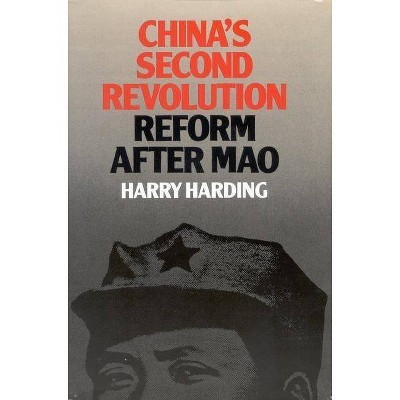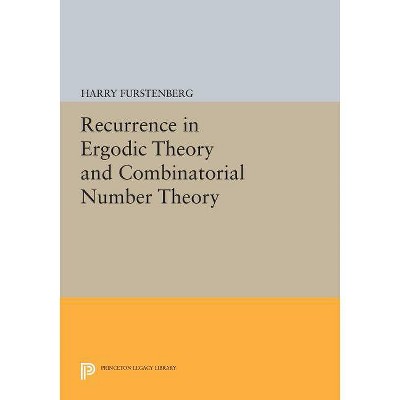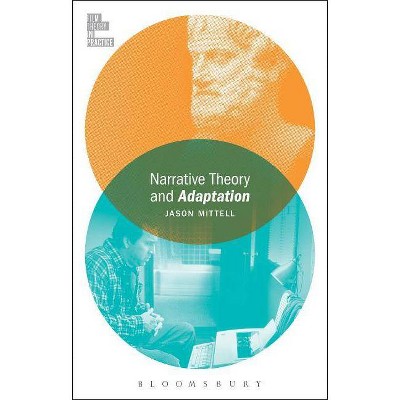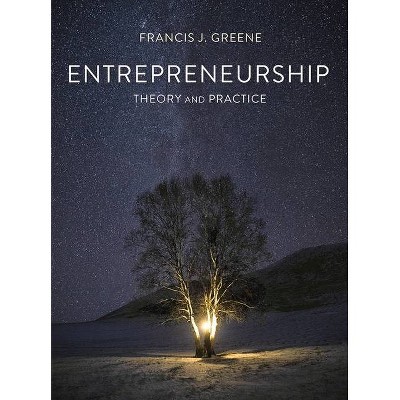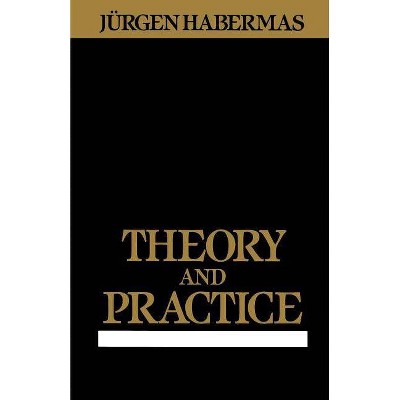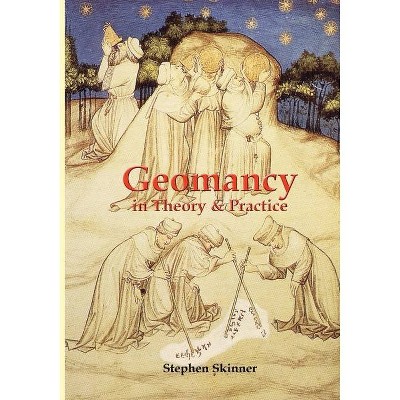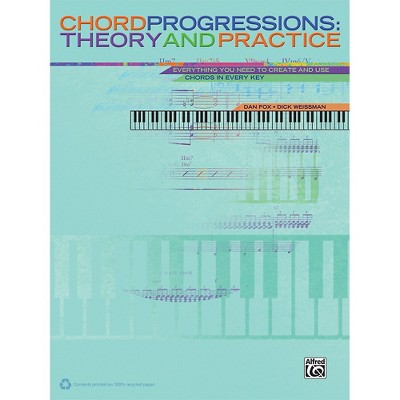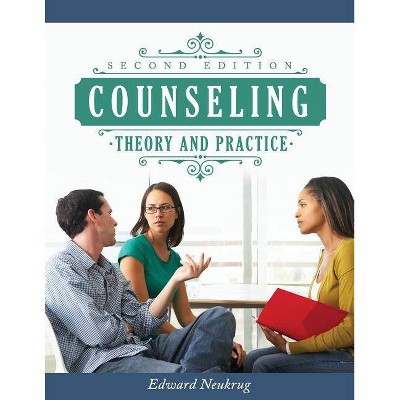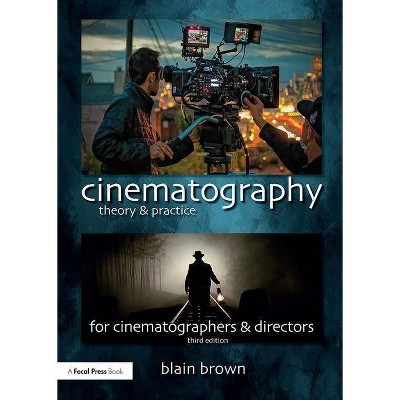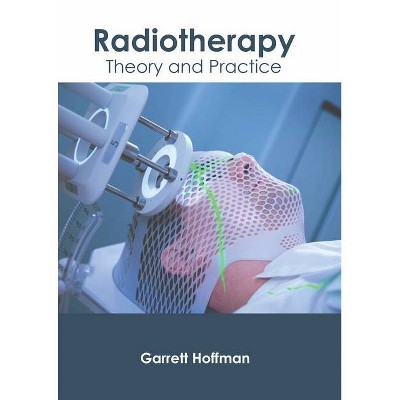A Fragile Relationship - (Learning: Theory and Practice) by Harry Harding (Paperback)
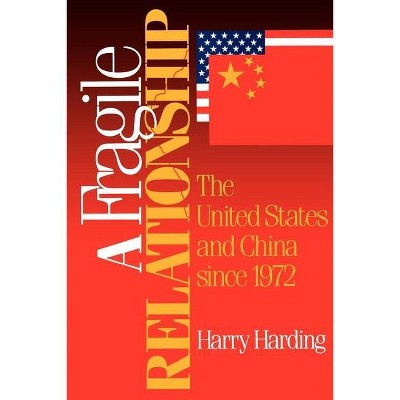
Similar Products
Products of same category from the store
AllProduct info
<p/><br></br><p><b> About the Book </b></p></br></br><p>President Nixon's historic trip to China in February 1972 marked the beginning of a new era in Sino-American relations. For the first time since 1949, the two countries established high-level official contacts and transformed their relationship from confrontation to collaboration. Over the subsequent twenty years, however, U.S.-China relations have experienced repeated cycles of progress, stalemate, and crisis, with the events in Tiananmen Square in June 1989 the most recent and disruptive example. Paradoxically, although relations between the two countries are vastly more extensive today than they were twenty years ago, they remain highly fragile.</p> <p>In this eagerly awaited book, China expert Harry Harding offers the first comprehensive look at Sino-American relations from 1972 to the present. He traces the evolution of U.S.-China relations, and assesses American policy toward Peking in the post- Tiananmen era.</p> <p>Harding analyzes the changing contexts for the Sino-American relationship, particularly the rapidly evolving international environment, changes in American economic and political life, and the dramatic domestic developments in both China and Taiwan. He discusses the principal substantive issues in U.S.-China relations, including the way in which the two countries have addressed their differences over Taiwan and human rights, and how they have approached the blend of common and competitive interests in their economic and strategic relationships. He also addresses the shifting political base for Sino-American relations within each country, including the development of each society's perceptions of the other, and the emergence and dissolution of rival political coalitions supporting and opposing the relationship.</p> <p>Harding concludes that a return to the Sino-American strategic alignment of the 1970s, or even to the economic partnership of the 1980s, is less likely in the 1990s than continued tension or even confrontation over such issues as<p/><br></br><p><b> Book Synopsis </b></p></br></br><p>President Nixon's historic trip to China in February 1972 marked the beginning of a new era in Sino-American relations. For the first time since 1949, the two countries established high-level official contacts and transformed their relationship from confrontation to collaboration. Over the subsequent twenty years, however, U.S.-China relations have experienced repeated cycles of progress, stalemate, and crisis, with the events in Tiananmen Square in June 1989 the most recent and disruptive example. Paradoxically, although relations between the two countries are vastly more extensive today than they were twenty years ago, they remain highly fragile.</p> <p>In this eagerly awaited book, China expert Harry Harding offers the first comprehensive look at Sino-American relations from 1972 to the present. He traces the evolution of U.S.-China relations, and assesses American policy toward Peking in the post- Tiananmen era.</p> <p>Harding analyzes the changing contexts for the Sino-American relationship, particularly the rapidly evolving international environment, changes in American economic and political life, and the dramatic domestic developments in both China and Taiwan. He discusses the principal substantive issues in U.S.-China relations, including the way in which the two countries have addressed their differences over Taiwan and human rights, and how they have approached the blend of common and competitive interests in their economic and strategic relationships. He also addresses the shifting political base for Sino-American relations within each country, including the development of each society's perceptions of the other, and the emergence and dissolution of rival political coalitions supporting and opposing the relationship.</p> <p>Harding concludes that a return to the Sino-American strategic alignment of the 1970s, or even to the economic partnership of the 1980s, is less likely in the 1990s than continued tension or even confrontation over such issues as trade, human rights, and the proliferation of advanced weapons. But he also explains the importance of maintaining normal working relations with China in order to promote security in East Asia, protect the global environment, and encourage an open, more realistic and stable relationship with China.</p> <p>Selected by Choice as an Outstanding Book of 1992</p> <p>Award winner for excellence in publishing from the Association of American Publishers</p><p/><br></br><p><b> Review Quotes </b></p></br></br><br><P>"Harding has written a wise book, and done so in an era in which many unwise things are being said about U.S.-China relations. "A Fragile Relationship" will become the standard against which other works on Sino-American relations are measured." --David M. Lamton, President, National Committee on U.S.-China Relations<br><br><P>"There is no wiser observer of Sino-American relations than Harry Harding. In this thoughtful book, he has not only skillfully covered the astonishing twists and turns f the last 20 years, by laid out a thoughtful agenda for a more realistic relationship between China and the United States." --Richard Holbrooke, Former Assistant Secretary of State of East Asian & Pacific Affairs<br><br><P>"This timely and thoroughly researched work puts into historical perspective the building of the American China policy consensus during the 1970s and 1980s and it shattering in the aftermath of Tiananmen. Harding's balanced and thoughtful combination of history, analysis, and recommendations constitutes an essential resource for anyone wishing to contribute intelligently to the national debate on building a new national consensus on China." --Roger W. Sullivan, President Emeritus, U.S.-China Business Council<br><br><P>"This up-to-date, post-Tiananmen work is an indispensable tool for those who want to understand what is really happening in China and what the U.S. Policy options are. Harding has accomplished this while giving due weigh to China's continuing economic accomplishments, without glossing over politics shortcomings and without the trendy China-bashing that distorts so many pronouncements about the PRC." --Arthur W. Hummel, Jr., Former Ambassador to the People's Republic of China<br><p/><br></br><p><b> About the Author </b></p></br></br><P>Harry Harding is a senior fellow in Foreign Policy Studies at the Brookings Institution.
Price History
Price Archive shows prices from various stores, lets you see history and find the cheapest. There is no actual sale on the website. For all support, inquiry and suggestion messagescommunication@pricearchive.us
